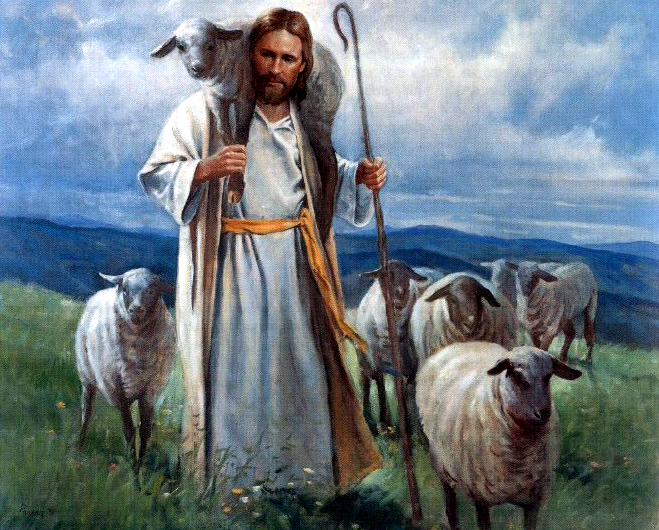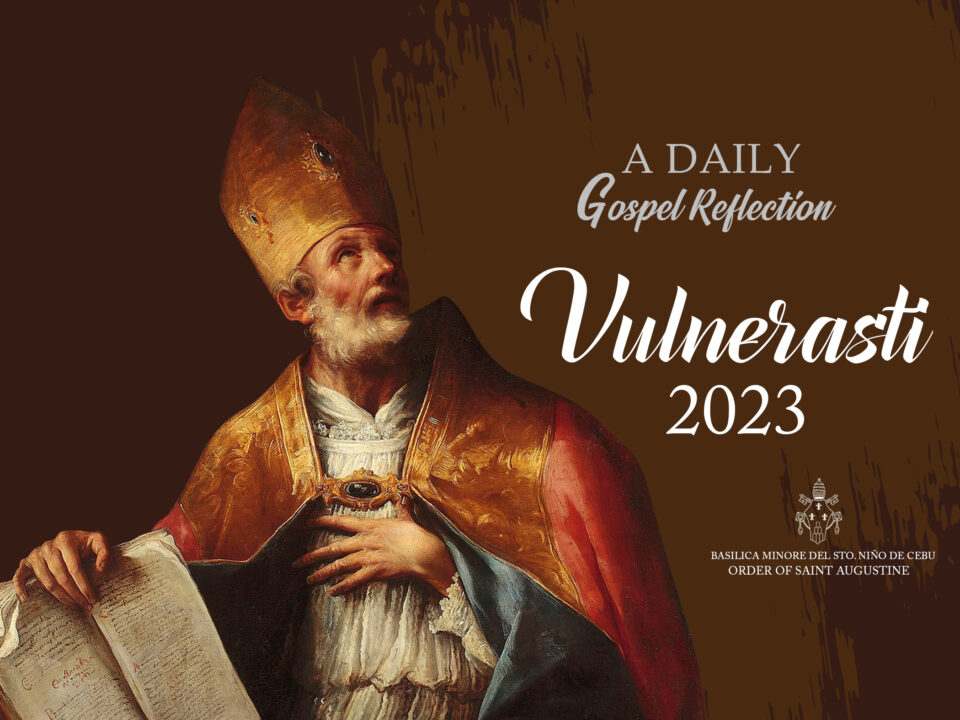Fourth Sunday of Easter

https://www.holy-trinity.oxon.sch.uk/events/2016-01-25-good-shepherd-assembly
Today’s Reflection
Gospel: Jn 10:27-30
May 8, 2022 | Sunday
My sheep hear my voice and I know them; they follow me and I give them eternal life. They shall never perish, and no one will ever steal them from me. What my Father has given me, is greater than all things else. To snatch it out of the Father’s hand, no one is able! I and the Father are One.”
Today’s Reflection:
It is always a wonder why the Bible in general used the imagery of the sheep to refer to the chosen people of God. In the case of the New Testament, the followers of Jesus are referred to as the sheep. If his followers are the sheep, it necessarily follows that Jesus is not just an ordinary shepherd but their good shepherd (Jn. 10:11). But why should we not use the image of goat to refer to Jesus’ followers with Jesus as their goatherd?
We are familiar with, among others, how sheep and goats were used as sacrificial offerings in the Pentateuch. The Lord God commanded the people to offer animals such as them to serve as a sin offering for the forgiveness of sins. We were informed how Israel broke their promises to God and this resulted in curses and pestilence in their lives. In order to mend that broken relationship, the people of God were exhorted to perform sacrificial offerings to mark their readiness to receive God’s forgiveness (Lev. 4 & Num. 15). Both goats and sheep in this regard were given equal value. But later books of the OT emphasized how sheep outshone the goats. The prophet Ezekiel for instance described the Israelites as sheep (Ez. 34) while Isaiah described God as the shepherd (Isa. 40:11). The opening verse of Psalm 23 reflects how God as a shepherd gives provisions to his sheep (Ps. 23:1). Nothing is heard about the goats to describe a relationship between God and his people.
In the NT, the discrimination against the goats became more intense. Elsewhere in the gospels, Jesus identifies the sheep to those whose destination is God’s kingdom whereas the goats are those who will go away to eternal damnation. He will set the sheep on his right hand, but the goats on the left (Mt. 25:31-46) because as Jesus articulates, the sheep are those who gave food to the hungry, gave a drink to the thirsty, welcomed the strangers, clothed the naked, and visited the sick and the prisoners. Those who fail to practice any of these were considered as goats.
But why not goats? Why did God in the OT consider himself as the good shepherd? Why did Jesus confirm such an attribute to himself as a good shepherd to his flock not as a “good goatherd” to his “goat”? Perhaps we can gain some insights by looking into the characteristics of these two creatures.
First of all, sheep follow other sheep. They are notorious for following the leader, regardless of how dangerous or foolish that may be. They are the best example of a group with a “flock mentality.” They go with the flow, wherever their leader goes, they go. The goats however are independent and naturally curious. They do not need a leader with whom to follow. For as long as there is an abundance of grass, goats can live happily alone.
Second, the sheep are afraid to be alone because they are vulnerable. They can be frightened by their predators if left to themselves alone. That is why they are called gregarious animals. As to how to protect themselves from their predators, goats have horns that are narrow and straight. Many breeds of sheep, however, are hornless and if ever they have, their horns curl around in loops on the side of their heads which cannot protect themselves when a predator attacks them.
Finally, the sheep wander and turn when they walk. They look behind them with first one eye and then the other. They are also dependent on their shrewd hearing and strong sense of smell to prepare themselves whenever enemies get closer to them. Such attributes are also possessed by the goats but taken, they are more fearless and quick which allow them to live in areas that other earthbound animals such as sheep would not even try.
With this background, we can understand now what Jesus meant when he said that his sheep hear his voice and know them, for they follow him (Jn. 10:27). Like sheep, people tend to follow whoever leads them. Hence, a leader’s role is very significant in order to direct them to the right path of life. For Christians, they too need a leader to guide, inspire, correct, exhort and teach them. Jesus as the good shepherd leads his people to the Father for no one comes to the Father except through him (Jn. 14:6). Furthermore, Jesus as a good shepherd sacrificed his life for his flock to be saved. He does not want anybody to be left out. If something happens to one of his sheep, he would find ways to bring him back to the fold (Mt. 18:10-14). The good shepherd wants every one of us to be saved; it now depends on us whether we accept the invitation or refuse it for in the mind of St. Augustine: “God created us without us: but he did not will to save us without us” (s. 169. 13). /Vulnerasti, 2022



